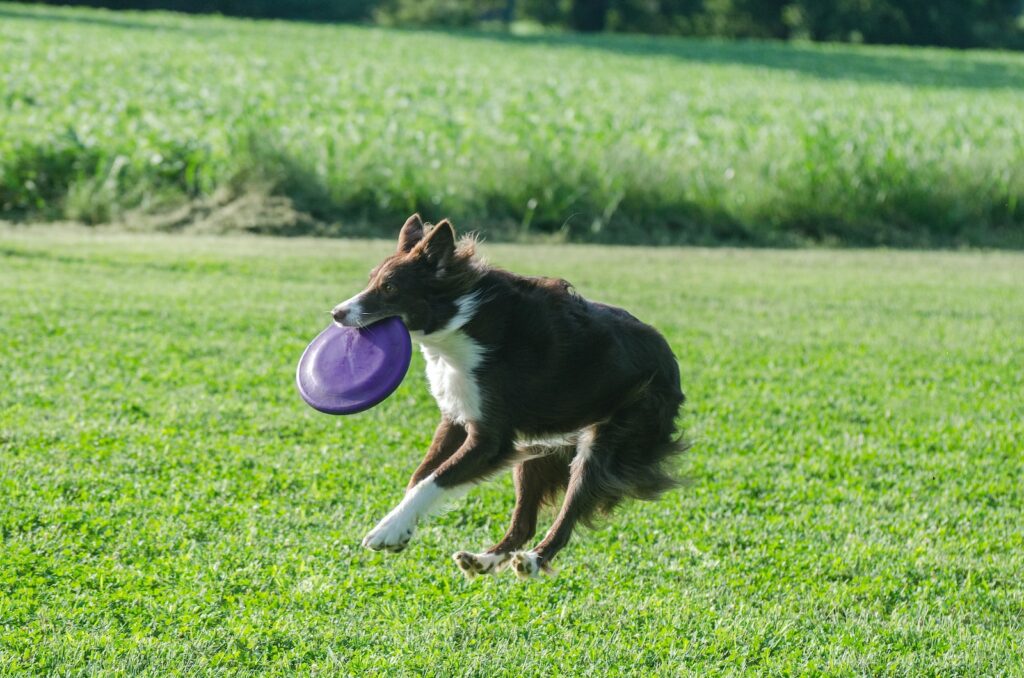Can Dogs Eat Hamburger? — Yes, They can
Hamburgers can be safely consumed by dogs, but with certain considerations. It is important to ensure that the hamburger is plain and cooked thoroughly without any additional seasonings or toppings. The meat should be lean and free from any bones, as bones can pose a choking hazard or cause digestive issues. Feeding small portions of hamburger as an occasional treat or meal to dogs can be a source of enjoyment and additional protein in their diet.
Can Puppies Eat Hamburger?
Puppies can eat hamburger, but it should be given in moderation and appropriate portions. Their developing digestive systems may not handle fatty or heavily seasoned meats well. It is crucial to consult with a veterinarian before introducing hamburger to a puppy’s diet. Gradually introducing small amounts of plain, cooked, and lean hamburger, mixed with their regular puppy food, can be a suitable choice. Monitoring their reaction and ensuring they do not develop any digestive issues is essential.
Things to consider when feeding hamburger to puppies?
When feeding hamburger to puppies, it is essential to consider their age, overall health, and any specific dietary requirements. Puppies have sensitive stomachs and may not tolerate rich or fatty foods, including hamburgers, easily. It is advised to consult with a veterinarian to determine the appropriate portion size and frequency of introducing hamburger into their diet. Additionally, always ensure the hamburger is thoroughly cooked and free from any additives or seasonings that may be harmful to puppies.
Nutritional Benefits of Hamburger for Dogs — Why Hamburger is Good for Dogs?
1. Protein Source
Hamburger is a significant source of protein for dogs. Protein is essential for muscle development, repair, and overall growth. It provides the necessary amino acids for various vital functions within a dog’s body.
2. Energy Boost
The high protein content in hamburger provides dogs with an energy boost. This is especially beneficial for active dogs, working dogs, or dogs participating in activities that require endurance and physical exertion.
3. Iron and B Vitamins
Hamburger contains iron and B vitamins, such as B12, which are vital for healthy blood circulation, brain function, and metabolism. These nutrients contribute to a dog’s overall well-being and can support their immune system.
4. Palatability
Hamburger is often enjoyed by dogs due to its taste and texture, making it an appealing and tasty addition to their diet. This can be particularly helpful when trying to encourage dogs to eat or to provide variety in their meals.
5. Source of Healthy Fats
Hamburger can contain healthy fats, such as omega‑3 fatty acids, when prepared with lean meat. These fats are beneficial for a dog’s skin, coat, and joint health. However, it is important to feed lean hamburger to avoid excessive fat content and potential digestive issues.
Potential Allergies: Can Dogs Be Allergic to Hamburger?
Dogs can develop allergies to various food items, including hamburger. Symptoms of hamburger allergies in dogs may include gastrointestinal upset, skin irritation, itching, or excessive licking. If such symptoms occur, it is best to consult with a veterinarian to determine the cause and develop an appropriate dietary plan for the dog.
Symptoms of Hamburger Allergies in Dogs
- Vomiting or diarrhea: Dogs with hamburger allergies may experience digestive issues such as vomiting or diarrhea.
- Skin rashes or itching: Allergic reactions can manifest as skin irritations, redness, rashes, or excessive itching.
- Difficulty breathing or swelling: In severe cases, dogs may exhibit difficulty breathing, coughing, or swelling of the face, lips, or throat.
What to Do If Your Dog Shows Symptoms?
- If your dog shows any symptoms of hamburger allergies, it is important to stop feeding them hamburger immediately.
- Consult with a veterinarian to discuss the symptoms and potential allergies.
- The veterinarian may recommend an elimination diet or allergy testing to identify the specific allergen.
- Follow the veterinarian’s advice on any necessary diet modifications or treatment options.
Recommended Amount: How Much Hamburger Can a Dog Consume?
The recommended amount of hamburger for a dog depends on various factors such as the dog’s size, age, activity level, and overall health. As a general guideline, hamburger should not exceed 10% of a dog’s daily caloric intake. It is crucial to consult with a veterinarian to determine the appropriate portion size and frequency of including hamburger in a dog’s diet.
Things to Consider When Feeding Hamburger to Dogs
When feeding hamburger to dogs, it is important to remember the following considerations:
- Choose lean, plain, and high-quality hamburger without any additives or seasonings.
- Avoid feeding hamburger with additional toppings such as cheese, condiments, or buns, as these can be unhealthy for dogs.
- Ensure the hamburger is cooked thoroughly to eliminate any potential bacteria or parasites.
- Monitor the dog’s reaction to hamburger and any potential digestive issues.
- Always consult with a veterinarian for specific dietary recommendations tailored to an individual dog’s needs.
How to Feed Hamburger to Dogs: A Quick Guide
Feeding dogs hamburger can be a delightful experience for both the dog and the owner. Here is a quick guide for incorporating hamburger into a dog’s diet:
Hamburger Meal
Create a balanced hamburger meal for your dog by following these steps:
- Choose lean and plain hamburger without any additives or seasonings.
- Cook the hamburger thoroughly, ensuring it is fully cooked and free from any pink color.
- Allow the hamburger to cool down before serving it to the dog.
- Mix the cooked hamburger with the dog’s regular food, ensuring it is well-distributed.
- Feed an appropriate portion size, considering the dog’s size, activity level, and overall dietary needs.
Hamburger Treats
Create delicious hamburger treats for your dog with these steps:
- Prepare lean and plain hamburger, cooking it thoroughly and allowing it to cool.
- Cut the cooked hamburger into small, bite-sized pieces or use a food processor to create hamburger crumbles.
- Use the hamburger pieces or crumbles as toppings or mix-ins for homemade dog treats or regular dog food.
- Avoid using excess salt, oil, or seasonings in the treat recipes, keeping them simple and healthy for the dog.
Conclusion
In conclusion, dogs can safely consume hamburger with certain considerations. It provides them with a protein source, energy boost, essential nutrients, and can be enjoyed as a palatable treat or meal addition. However, it is crucial to feed lean, plain, and thoroughly cooked hamburger without any additional toppings or seasonings. Monitoring the dog’s reaction and consulting with a veterinarian for specific dietary recommendations is essential. By following these guidelines, you can safely include hamburger in your dog’s diet and offer them a tasty and nutritious option.






